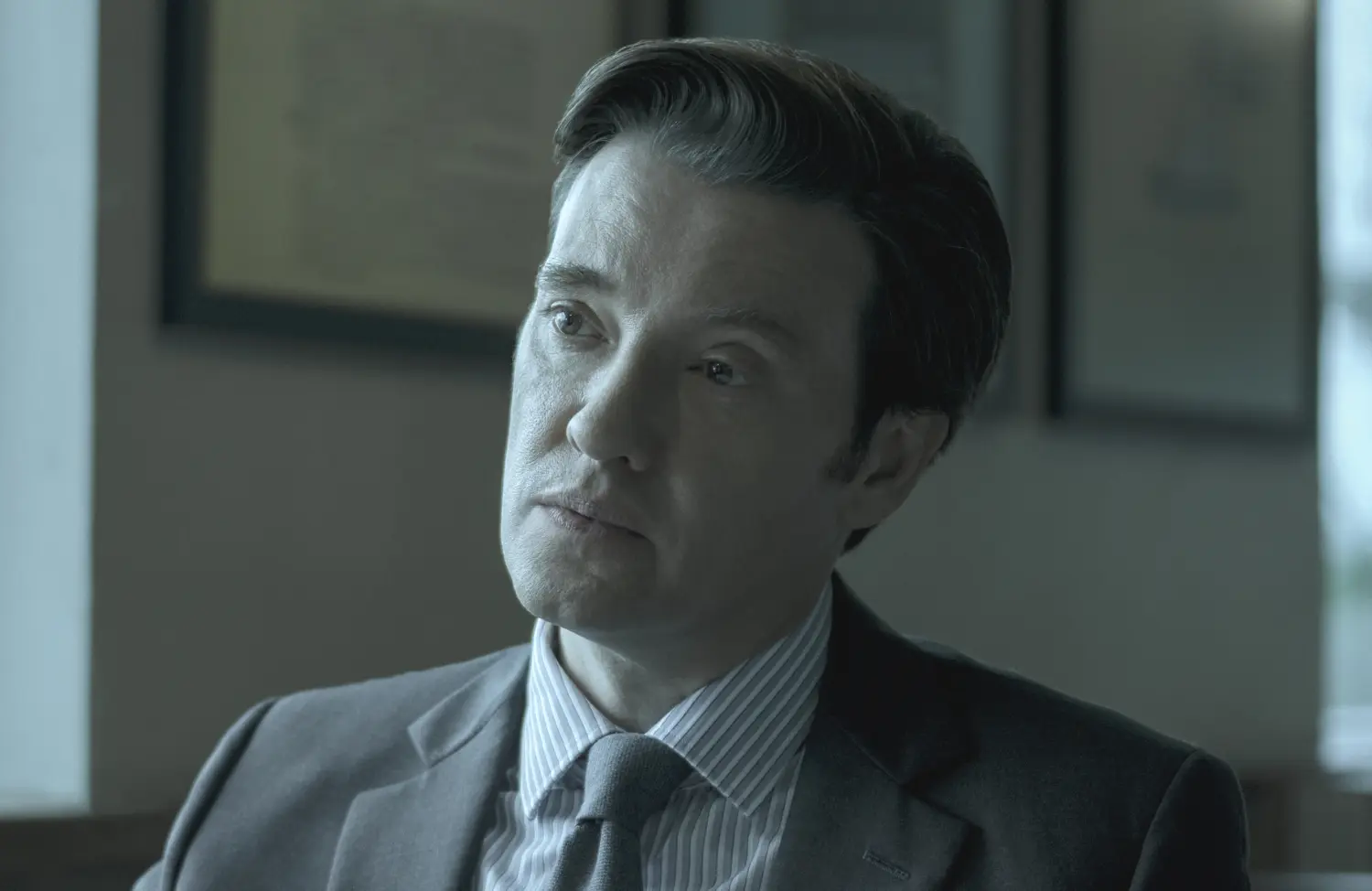Meet Ozark’s Shame-Free (and Totally Corrupt) Gay Fed
-
 Jason Butler Harner as FBI agent Roy Petty in Ozark (Netflix)
Jason Butler Harner as FBI agent Roy Petty in Ozark (Netflix)Spoiler Warning: This article discusses major plot points through the end of Ozark’s second season.
Roy Petty’s gay, and Roy Petty hates himself, but Roy Petty doesn’t hate himself because he’s gay.
That’s an important distinction, and it makes the character -- who’s in the first two seasons of Netflix’s Ozark -- distinct among queer men on antihero dramas. After all, most of them meet terrible ends that are rooted in anti-gay hatred: Consider Sal in Mad Men, who loses his job and his family, or Vito Spatafore in The Sopranos, who gets gored by that pool cue.
Homophobia even affects powerful gay antiheroes like Deran on Animal Kingdom. He frequently struggles with self-loathing, and in the first season, he assaults his boyfriend in an attempt to prove he doesn’t like gay sex.
But none of that affects Petty (Jason Butler Harner). Instead, he tortures himself because he failed to keep his mother off drugs. That guilt at least partially drives his reckless need to arrest Marty and Wendy Byrde (Jason Bateman and Laura Linney), who are laundering a drug cartel’s money through businesses in a Missouri resort town.
As he tries to bring the Byrdes down, Petty makes a cascading series of terrible choices. For instance, he starts a romantic relationship with Russell, a low-level criminal, then forces him to become an informant. When Russell gets killed, Petty barrels on, terrorizing a resort owner named Rachel (Jordana Spiro) -- and manipulating her drug addiction -- so that she’ll report on the Byrdes instead. By the end of season two, when Petty is killed by Russell’s brother, it’s clear his warped sense of justice has destroyed him.
This complexity helped Ozark earn nine Emmy nominations this year, including its first-ever nod for Best Drama. For Harner, it also made playing Petty a relief. “My biggest thing from day one was that shame was not a motivator for him,” he says. “He wasn’t living a closeted life. He didn’t have massively internalized homophobia. Those are tropes that we see frequently and that I get frustrated by.”
Harner, who is openly gay himself, realized Petty was a different type of character while he was shooting a gay sex scene. Early in the first season, we see him muttering about the Byrdes while he’s getting pleasured by a male prostitute -- because not even a blow job can distract him from his mission.
“The revelation there [for the audience] is not about shame,” Harner says. “The revelation is that he has emotional limitations and things are transactional. That was a big moment for me. It was where I was able to lean into who I thought Petty was.”
From there, Harner relied on his extensive theater background to flesh out his performance, which was a good fit with the show’s overall approach. “If you wanted to know, [the producers] would share what was going to happen during the season before it was shot,” he says. “On a lot of shows, they don’t want the actors to know for a variety of reasons, but I like knowing the trajectory. Laura Linney [who plays Wendy] and I lived together in this house while we were shooting both seasons. It was so much fun, and she and I work similarly. We love looking at the full thing, seeing the themes that the writing is teasing out, and figuring out how we can bob and weave in those themes.”
One of the show’s obsessions is whether you can love someone when you need something from them. That tension defines Petty’s relationship to Russell, and Harner decided that Petty really did care about him. “I felt strongly that the most interesting choice was that he was gonna fall in love with him,” he says. “The other direction, of him being so skilled and ruthless, was just an old narrative I wasn’t attracted to.”
You can see another glimpse of Petty’s twisted logic in the fifth episode of season two, when he finally brings Marty in for questioning. He shares a charged glance with Agent Trevor Evans (McKInley Belcher III), his former partner and former lover, but the connection quickly sours. Harner explains, “Petty was so excited [about arresting Marty] and he was very vulnerable in wanting to share this joy with Trevor. He wanted that enthusiasm to supersede his bad behavior, and for a second it does. But Trevor brings him down to reality.”
That exchange -- which acknowledges Petty’s sexuality but is driven by so much more -- underlines why Harner said yes to Ozark in the first place. “I love that we had the freedom to figure that out,” he says. “If you read it on the page, it wasn’t there at all. But we found this way to share a detail about their relationship and about how crazy Petty was getting. I’m bizarrely proud of that moment.”
People are talking about Ozark in our forums. Join the conversation.
Mark Blankenship has been writing about arts and culture for twenty years, with bylines in The New York Times, Variety, Vulture, Fortune, and many others. You can hear him on the pop music podcast Mark and Sarah Talk About Songs.
TOPICS: Ozark, Netflix, Jason Butler Harner